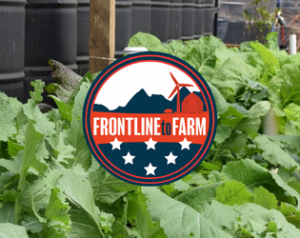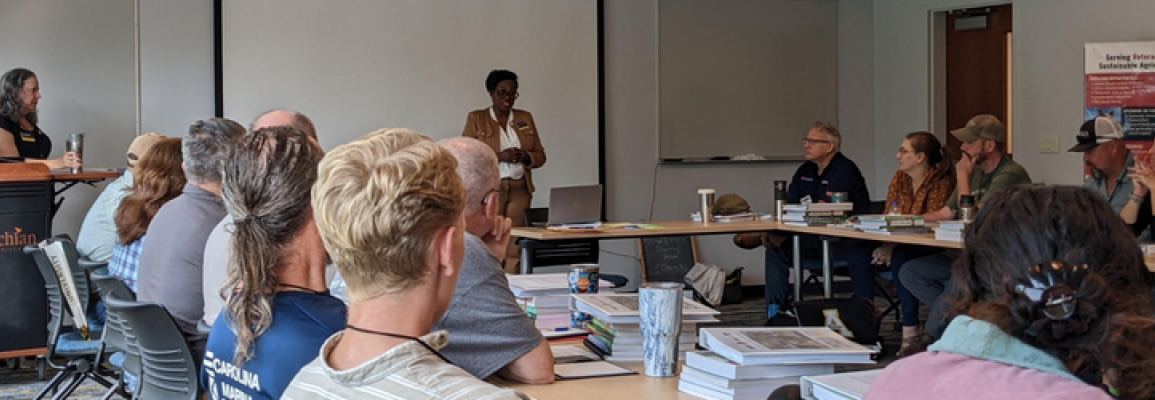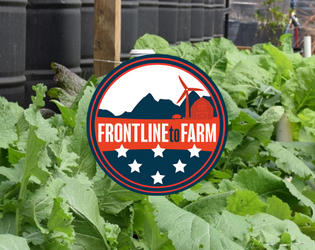From Aug.25-29, the Frontline to Farm program hosted Armed to Farm, a week-long training for 30 participating farmers from the southeastern United States.
To qualify for this training, participants were either veterans or partners of veterans who are interested in farming.
Participants have been housed on campus in Thunder Hill Hall, where they also take classes. Training was facilitated by two trainers with additional support from North Carolina Cooperative Extension. The training covered a wide variety of farming issues, including financing, soil health, legal issues, and marketing. Armed to Farm received donations from local organizations, including the University Bookstore, F.A.R.M. Café, Food Lion, Publix, Mast General Store, and Bare Essentials Natural Market. Participants also visited the University's Sustainable Development Teaching and Research Farm at the Blackburn Vannoy Estate.
Frontline to Farm is a collaborative effort featuring faculty and students from the College of Fine and Applied Art's departments of Sustainable Development and Communication. This project receives funding through the Beginning Farmer and Rancher Development Program, which is funded by the National Institute of Food and Agriculture (NIFA). App State communication professor Dr. Lynn Gibbard and Sustainable Development professor Anne Fanatico co-direct Frontline to Farm.
"The farm is a great way to teach our students about sustainability in the food system, conduct research, and implement outreach projects with military veterans and beginning farmers," Fanatico said.
Gibbard draws on various experiences from her life to assist with Frontline to Farm. Gibbard grew up on a farm, but also has experience with writing grant proposals. Being a professor in the Communication Department is also an asset when navigating projects like Frontline to Farm. According to Gibbard, sustainable agriculture is an important field of study because of the impact on the environment.
"Frontline to Farm is a great way to reconnect us to our mission to our students and our community," Gibbard said.
A smaller community garden is housed at the Living Learning Center on campus. Items grown at this garden are available to the broader community, but sometimes, there's more food produced than what is consumed by students. To reduce food waste, excess food is often delivered to the Student Veteran Resource Center.


